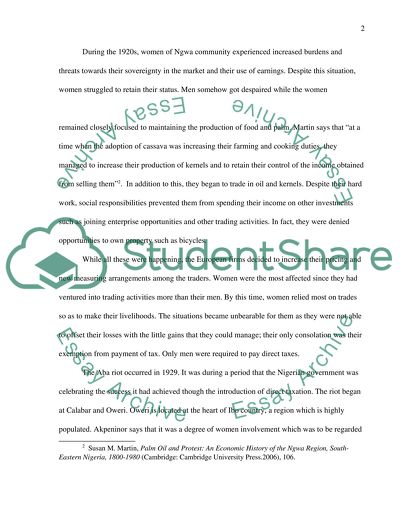Cite this document
(“Aba riot, woman and African economy Research Paper”, n.d.)
Aba riot, woman and African economy Research Paper. Retrieved from https://studentshare.org/history/1655132-aba-riot-woman-and-african-economy
Aba riot, woman and African economy Research Paper. Retrieved from https://studentshare.org/history/1655132-aba-riot-woman-and-african-economy
(Aba Riot, Woman and African Economy Research Paper)
Aba Riot, Woman and African Economy Research Paper. https://studentshare.org/history/1655132-aba-riot-woman-and-african-economy.
Aba Riot, Woman and African Economy Research Paper. https://studentshare.org/history/1655132-aba-riot-woman-and-african-economy.
“Aba Riot, Woman and African Economy Research Paper”, n.d. https://studentshare.org/history/1655132-aba-riot-woman-and-african-economy.


